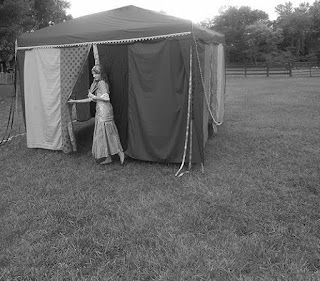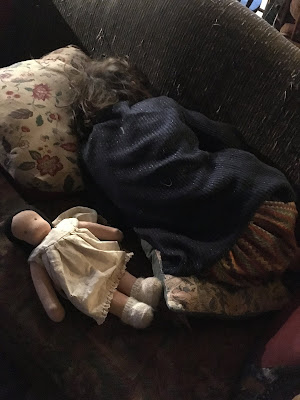Book Review: Father Elijah (1996)
Book Review: Father Elijah by Michael O'BrienPublished in Our Sunday Visitor, November 1996
This text is the author's copy and may vary slightly from the publisher's copy.
This text is the author's copy and may vary slightly from the publisher's copy.
I remember the first time I encountered the Book of Revelations. I was about ten years old and had just been given a Good News Bible, which I was in the process of devouring, chapter by chapter and book by book. I read a lot of very violent and complex stories that never found their way into a children's book of Bible stories -- tales of incest, mass mutilations, assasinations. Pretty heavy stuff for a pre-teenager. I couldn't believe a lot of the things in there were sacred Scripture.
I admit I skipped Leviticus, Deuteronomy, Numbers, the Wisdom books, and all of the letters of the apostles. After I read the Book of Acts, I jumped right into the Apocalypse of St. John.
It was a trip into a strange and bizarre world that held me spellbound. By the time I finished, I was wide-eyed with visions of ladies crowned with stars or sitting on horrible beasts, fantastic monsters, and bloodstained saints. What a book! I couldn't wait for the world to end so I could see these marvels, a cosmic showdown between Christ and the devil. It would be better than any movie.
But as I grew older, I grew less anxious to see the end of the world, which always seemed to be perilously imminent. I learned about the threat of nuclear holocaust, the widespread evil of abortion (kids tend to take abortion more personally. After all, kids were recently babies themselves. If adults can kill cute little babies, what would stop them from killing ten year olds?), violence in the cities and the suburbs, and horrible foreign wars.
The blackness in the world is so thick and so potent that it's hard to believe in a loving God, let alone an all-conquering one. Lots of times, it seems that good exists merely to be trampled over by the evil and the nonchalant. I became concerned more about how much my family and I would have to suffer when all hell broke loose on earth. Watching the heart of the world grow cold is a chilling process.
Canadian author Michael O'Brien meditates on this phenomenon in his fascinating metaphysical thriller, Father Elijah. (Ignatius Press, 1996) "Why does God allow suffering?" is a major theme in this book, tightly woven with Vatican intrigue and world-wide struggles. Father Elijah is a Jewish WWII survivor, a one-time Israeli politician, now a Carmelite priest. The Vatican summons him from his cloistered monastery in Palestine to try to convert the new European President, a man who may be the Antichrist. This mission of the spirit is fraught with political dangers and temptations both temporal and spiritual.
Through this tale, O'Brien attempts to come to grips with the whole problem of evil. The author wades into the grim waters of the Holocaust in the first few pages, and doesn't emerge until it plumbs the depths in the last chapter. The Holocaust is a paradigm for our century, and allows O'Brien to probe the mystery of Divine Mercy as the world teeters on the brink of a new Holocaust.
Overall, the book resonates with fine writing style, although parts in the middle are a bit patched together. One or two jumps in the plotline mar the narrative. As most of the book is set in exotic locales -- Capri, Rome, the Holy Land -- there's hard to detect any break in realism. However, when O'Brien sets some scenes in America, he tends to use a broad black brush to paint the state of the American Catholic Church. Granted, this book is supposedly set slightly in the future, when things are much worse. But I don't think that the trends O'Brien outlines in his book -- for example, the gradual "liberalization" of Catholic journalism in the USA -- are necessarily true to life. O'Brien's scenario is far more pessimistic, and a bit unrealistic. For example, most national Catholic papers are owned by lay organizations and are not under diocesan control to the extent that they are in Father Elijah.
The book makes a long aside in Warsaw, where Elijah confronts an aging homosexual, Smokhrev, who figured in his past. Smokhrev's story, like the Holocaust, becomes an interesting replay of the Garden of Eden. The theological arguments between the aged atheist and priest are a bit tedious at parts, but the subplot becomes truly satisfying at its conclusion.
O'Brien warns the reader in the introduction that this book isn't a simple potboiler. True to his warning, the book is more theme-oriented than plot-oriented. The storyline has starts and fits, meanders a bit, then gathers speed, races through several heartbreaking chapters, comes to an abrupt halt in the second to last chapter, becomes leisurely and metaphysical, ending in a subdued but striking manner.
It's not the typical Tom Clancy tome. Because of this, the average reader might struggle a bit with the unwieldy structure. However, I think some will ultimately find it more satisfying than the average thriller.
The resolution of Father Elijah is an epiphany, a bright rebirth that wouldn't have been as effective if the book hadn't confronted the darkness for so long. I think O'Brien manages to accomplish the obscure and ill-appreciated task he is laboring under -- not necessarily to write an apocalyptic novel of suspense and doom a la Pierced by a Sword, but to create a parable about suffering and its meaning in the light of eternity.
The book ends on a subtle note, with a scene that is (not unexpectedly) drawn from the Book of Revelation. Readers unfamiliar with the Scriptural Apocalypse might want to read Chapter 11:3ff so that they will be prepared for what happens. When I read the final scene of Father Elijah, I was hit with a spark of that excitement that had first touched me at the age of ten. And I picked up the Bible to get re-acquainted with Revelations.
It was even better than I remembered.
copyright Regina Doman, 1999. This document is available for republishing only after the author's permission has been obtained. Click the top button for an email link to the author.


Comments